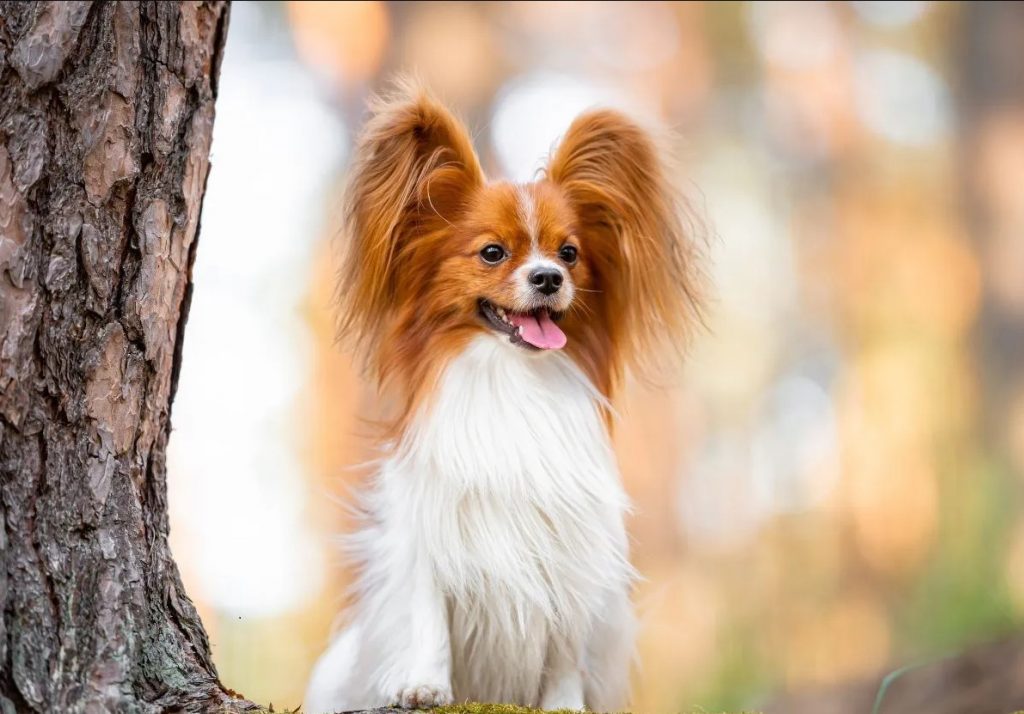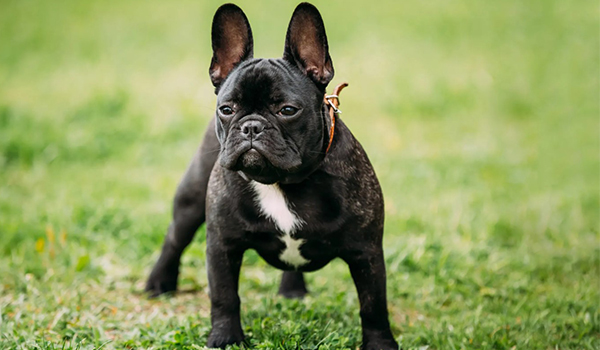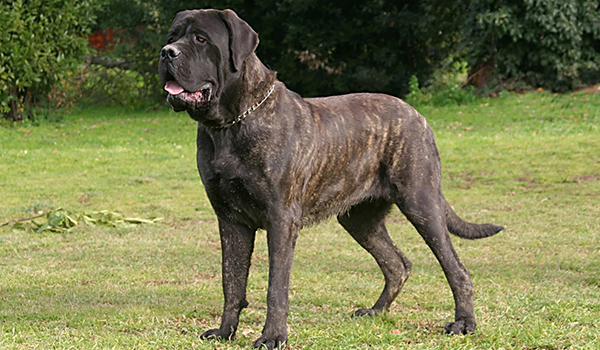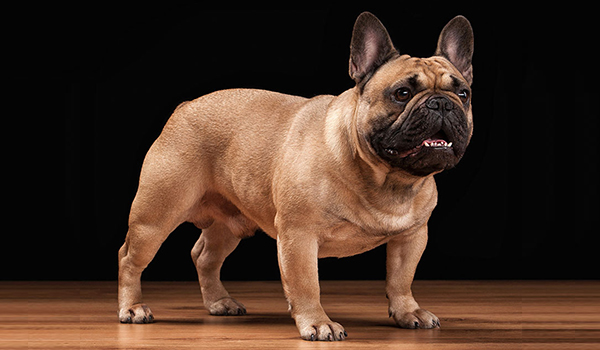
The Papillon, named for the French word meaning “butterfly,” is a small dog of exquisite elegance and sparkling intelligence. Instantly recognizable by their large, fringed ears that resemble butterfly wings, they are far more than just a pretty face. Consistently ranked among the most intelligent of all toy breeds, the Papillon combines the grace of a lapdog with the heart and energy of a much larger sporting dog.
This comprehensive guide will explore everything a future owner needs to know about the Papillon, from their royal history to their surprisingly robust nature, to help you decide if this “thinking person’s toy dog” is the right fit for your home.
Breed Overview
- Group: Toy
- Height: 8 – 11 inches (at the shoulder)
- Weight: 5 – 10 pounds
- Life Span: 14 – 16 years
- Coat: Long, fine, silky, and straight. It is a single coat with no undercoat, making it low-shedding but requiring maintenance. The classic color is white with patches of any color. A drop-eared variety is called a Phalène (French for “moth”).
A Brief History: A Dog of Royal Portraits
The Papillon’s history can be traced back nearly 700 years to Europe, where they were the darlings of royalty and nobility. They are descendants of the dwarf spaniels so often depicted in Renaissance paintings by masters like Titian and Rubens, often seen in the laps of wealthy and influential women.
Their name was changed from the “Epagneul Nain” (Dwarf Spaniel) to Papillon in the late 19th century as the erect-eared variety became more popular. The drop-eared Phalène was the original form. Their popularity among European courts, including that of Marie Antoinette, cemented their reputation as a sophisticated and intelligent companion.
The Papillon Temperament: The Intelligent Charmer
The Papillon’s personality is a dynamic blend of sharp intellect and affectionate charm. They are often described as “big dogs in a small package.”
- Intelligent & Trainable: Papillons are exceptionally bright, quick to learn, and highly trainable. They excel in advanced obedience, agility, and rally, often outperforming much larger breeds. Their intelligence requires mental stimulation to prevent boredom.
- Energetic & Playful: Don’t let their delicate appearance fool you. They are energetic, athletic, and enjoy a good game of fetch or a brisk walk. They retain a playful spirit throughout their lives.
- Alert & Curious: They are highly aware of their surroundings and will bark to alert you to visitors or unusual sounds, making them excellent watchdogs. This can lead to excessive barking if not managed.
- Affectionate & Bond-Oriented: They form very strong, devoted bonds with their owners and thrive on companionship. They can be somewhat reserved with strangers but are not typically nervous.
- Confident & Fearless: Their intelligence and history give them a confident, sometimes fearless, demeanor. They may not hesitate to challenge much larger dogs, so supervision is essential.

Caring for Your Papillon
Exercise: Small but Mighty
Their exercise needs are moderate but should be both physical and mental.
- Daily Requirements: 20-30 minutes of daily activity is sufficient. This can include short walks, active indoor play, and training games.
- Mental Stimulation: This is crucial. Puzzle toys, learning new tricks, and participating in dog sports are perfect outlets for their brilliant minds. A bored Papillon can become inventive in undesirable ways.
Grooming: Regular but Rewarding
Their beautiful coat is less prone to matting than other long-haired breeds, but it still requires consistent care.
- Brushing: Brush 2-3 times a week with a pin brush to prevent tangles in the feathering on the ears, chest, legs, and tail (“plume”). Pay special attention to the areas behind the ears and under the legs.
- Bathing: Bathe every 3-4 weeks or as needed to keep their silky coat clean.
- Other Needs: Regular nail trimming (their small feet are easily bothered by long nails), ear cleaning, and daily teeth brushing, as they are prone to dental issues like most toy breeds.
Training: A Joy for the Mind
Training a Papillon is generally a delightful experience due to their intelligence and eagerness to please.
- Start Early: Begin socialization and training as a puppy. Expose them to a variety of people, places, and sounds to build a confident, well-adjusted adult.
- Use Positive Reinforcement: They are sensitive and respond brilliantly to reward-based training with small, tasty treats, praise, and play. Harsh methods are completely unnecessary and counterproductive.
- Keep it Fun and Challenging: They thrive on learning new things. Keep sessions short, varied, and fun to hold their attention. They are ideal candidates for trick training.
- Manage Barking: Teach a “quiet” command from a young age to control their alert barking.

Health: What to Be Aware Of
Papillons are generally a very healthy, long-lived breed, but they are prone to a few specific conditions.
- Patellar Luxation: A common condition in small breeds where the kneecap slips out of place.
- Dental Problems: Crowded teeth are common. Daily teeth brushing and regular veterinary dental cleanings are essential.
- Open Fontanel: Some puppies are born with a soft spot on the top of the skull, similar to a human baby. This usually closes with age, but owners must be careful to avoid head injuries.
- Progressive Retinal Atrophy (PRA): A degenerative eye disease that can lead to blindness. Reputable breeders test for this.
Is a Papillon Right For You?
A Papillon might be your perfect match if you:
- Want an intelligent, trainable, and affectionate companion.
- Appreciate an energetic, playful dog that enjoys activities.
- Are looking for a low-shedding, relatively easy-to-groom toy breed.
- Want a long-lived, hardy small dog.
- Enjoy teaching tricks and engaging your dog’s mind.
You might want to reconsider if you:
- Want a completely quiet, low-energy lap dog (they bark and have energy to burn).
- Have very young children who might handle them too roughly.
- Are away from home for long hours regularly.
- Are frustrated by a sharp, alert bark.

Finding Your Papillon
- Reputable Breeders: Choose a breeder who prioritizes health and temperament. They should perform health tests on their breeding dogs (patella evaluations, eye exams) and be knowledgeable about the breed.
- Rescue & Shelters: Papillon-specific rescues exist. Many wonderful dogs of all ages are in need of homes. Adopting an adult can be a fantastic way to know the dog’s exact personality.
Understanding the Cost: The initial purchase price from a reputable breeder in the U.S. typically ranges from $1,200 to $3,000+. Prospective owners should also budget for routine grooming supplies, high-quality food, training, and preventative healthcare, particularly dental care.
Bringing a Papillon into your life means welcoming a dose of elegance, intelligence, and joyful energy. In return for your mental engagement and care, you will gain a loyal and captivating companion whose wit and charm will provide endless entertainment and devotion for many years.




